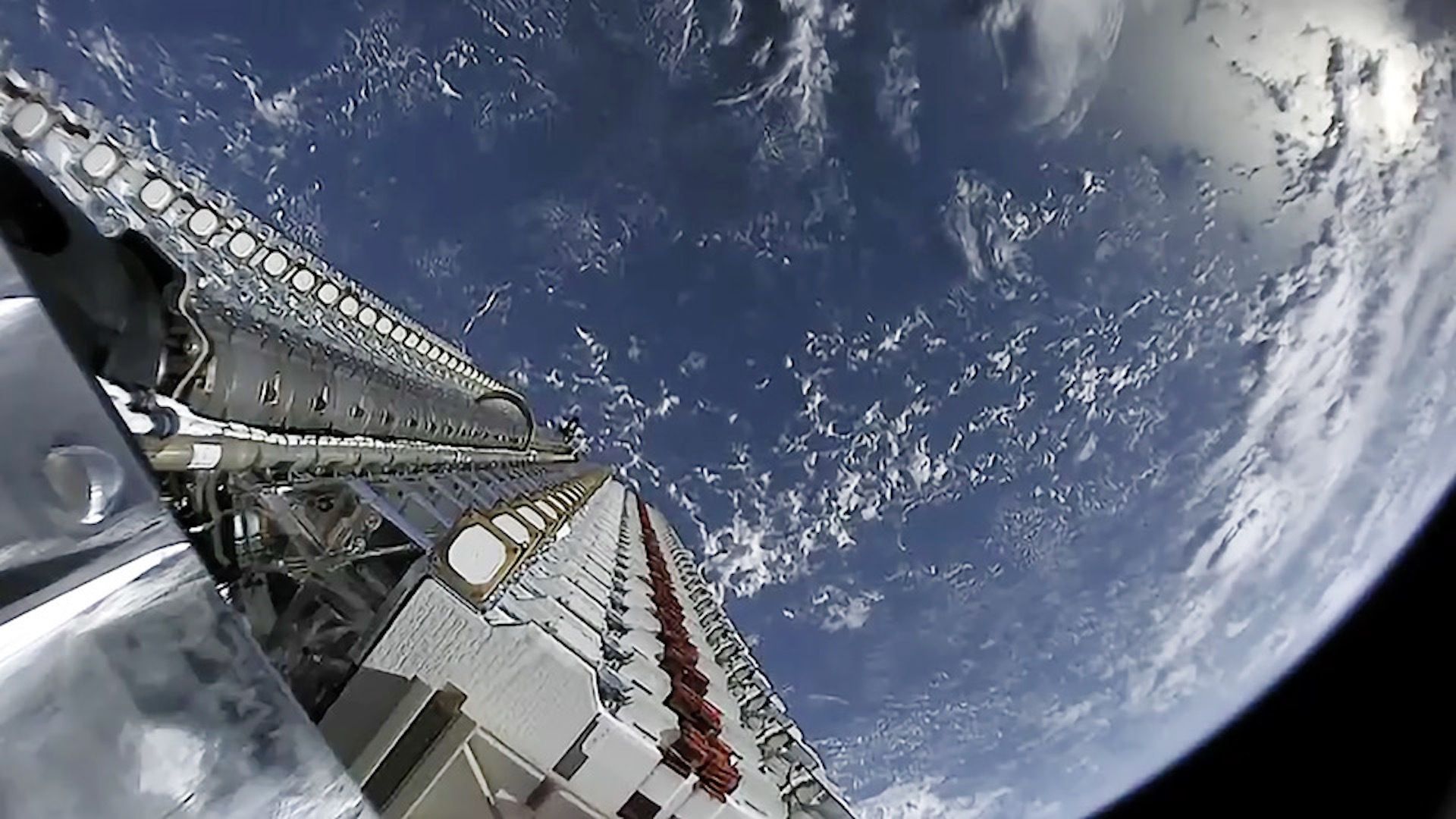FCC green-lights SpaceX satellite plans
Add Axios as your preferred source to
see more of our stories on Google.

SpaceX Starlink satellites being deployed in Earth orbit. Photo: SpaceX
SpaceX scored a regulatory victory at the Federal Communications Commission Tuesday, overcoming opposition from Amazon and other satellite companies on a key change to its plans for a satellite network that will beam internet access across the globe.
Why it matters: SpaceX needed FCC approval to move forward with its plan to provide internet access in hard-to-reach areas.
What's happening: SpaceX asked the FCC for permission to lower the orbit of its future Starlink satellites.
- Amazon — which plans to launch its competing Project Kuiper satellite network — objected, arguing that the SpaceX change would interfere with its plans.
- But the FCC unanimously sided with SpaceX, saying it doesn't believe the company's plans will cause significant interference.
- "Based on our review, we agree with SpaceX that the modification will improve the experience for users of the SpaceX service, including in often-underserved polar regions," the FCC said in the order.
What they're saying: Amazon described the FCC's decision as a "positive outcome" because of conditions the agency imposed on SpaceX, including accepting additional interference.
- "These conditions address our primary concerns regarding space safety and interference, and we appreciate the Commission’s work to maintain a safe and competitive environment in low earth orbit," an Amazon spokesperson said in a statement.
Between the lines, from Axios' Miriam Kramer: This victory further cements SpaceX as the leader among companies attempting to build mega-constellations of internet-beaming satellites. Whether any others will be able to catch up remains to be seen.
Go deeper: The billionaires' brawl over satellite broadband
Editor's note: This story has been updated with Amazon's statement.
